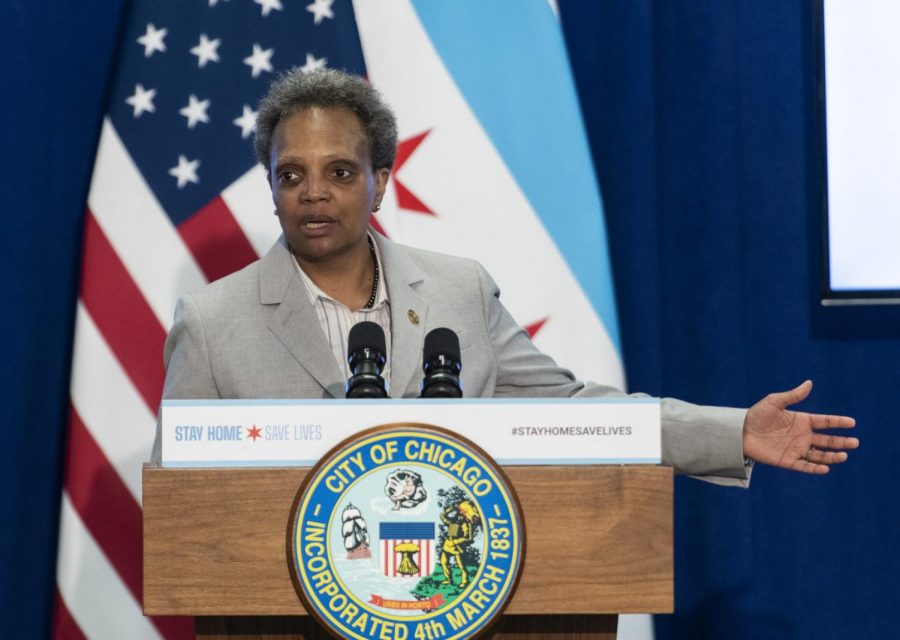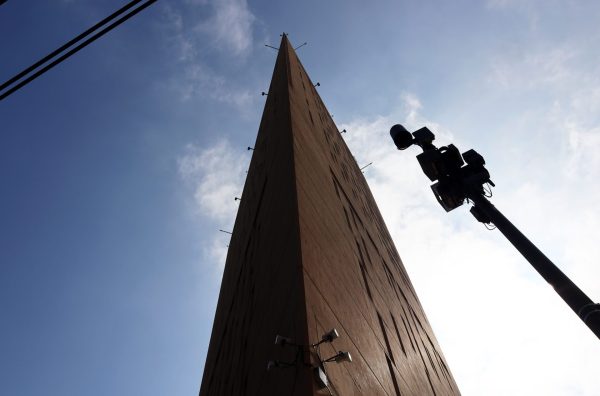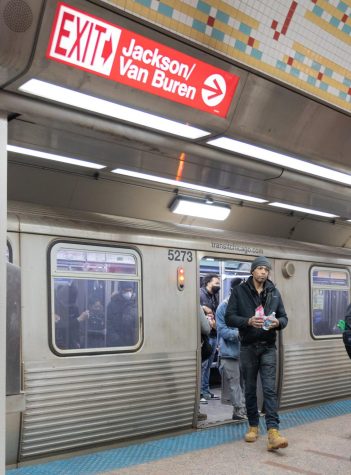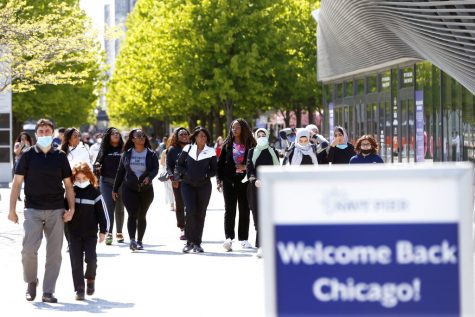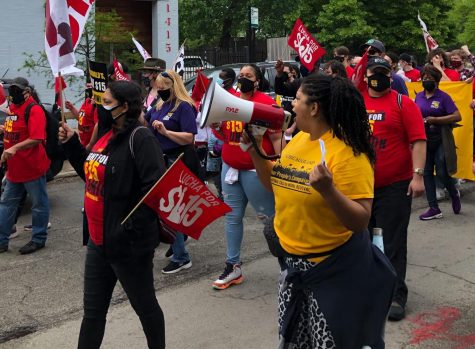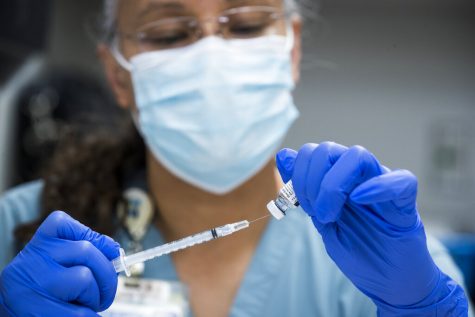Lightfoot estimates Chicago can begin reopening in June
Tyler LaRiviere/Chicago Sun-Times via AP
In this April 20, 2020, file photo, Chicago Mayor Lori Lightfoot speaks during a news conference in Chicago. Chicago officials say the nation’s third-largest city cannot begin to loosen restrictions designed to limit the spread of the coronavirus before early June. Gov. J.B. Pritzker has said all parts of the state are on track for restrictions to begin loosening on May 29. But Mayor Lightfoot said Friday, May 22, that the city is not yet hitting the metrics in her plan for gradually loosening restrictions and that she is hopeful that can happen by early June.
Chicago cannot begin to loosen restrictions designed to limit the spread of the coronavirus before early June, officials in the nation’s third-largest city said Friday.
Chicago, like the rest of Illinois, has been under a stay-at-home order since March 21. Gov. J.B. Pritzker has said all parts of the state are on track for restrictions to begin loosening on May 29. Chicago Mayor Lori Lightfoot, though, said she could not provide a specific date when restrictions in the city will be loosened but that she hoped it can move forward in early June.
“It’s just a little more time, and I know that we can do this,” she said. “But we have to be smart and careful.”
The city’s multi-phase plan for reopening businesses, government buildings and lifting some restrictions on residents’ movement requires a decline in new cases and emergency room visits, along with a 15% average rate of positive tests among those performed by health care providers in a 14-day window.
At 20.5%, the rate of positive tests remained a concern Friday, but the head of the city’s public health department said that percentage has declined in recent days and that she feels confident the city can reach the target number.
“The bottom line is that we are on track but we need people to continue to stay home and save lives this weekend and next week,” Dr. Allison Arwady said.
Chicago is in the second phase of Lightfoot’s plan, which requires people to stay home except for essential activities or work.
Lightfoot said the next phase would allow business to resume at City Hall, at child care facilities, most city parks, libraries, hotels and some office jobs, including real estate and professional services. The city is working on specific guidelines for businesses and public buildings, including capacity limits.
Restaurants and coffee shops with outdoor space could resume some service and barbers and hair salons also could reopen with precautions.
The city had 40,465 positive cases and 1,850 deaths as of Friday. Statewide, Illinois has 105,444 cases and 4,715 deaths, including 2,758 new positive tests and 110 additional deaths.
For most people, the coronavirus causes mild or moderate symptoms, such as fever and cough. But for others, especially older people and the infirm, it can cause severe symptoms and lead to death.
Pritzker on Friday announced another tweak to the statewide strategy for loosening restrictions, adding child care facilities to the list of industries that can reopen next week as some parents return to work.
Pritzker said 15% of child care facilities in Illinois have remained open since March for the children of essential workers, and there has not been substantial spread of the virus related to those businesses.
Reopened facilities must limit the number of children they care for at one time and submit reopening plans to public health officials with details on cleaning and staff training.
Capacity can expand after fours weeks. Most home-based care centers, which are smaller, can care for their typical number of children.


